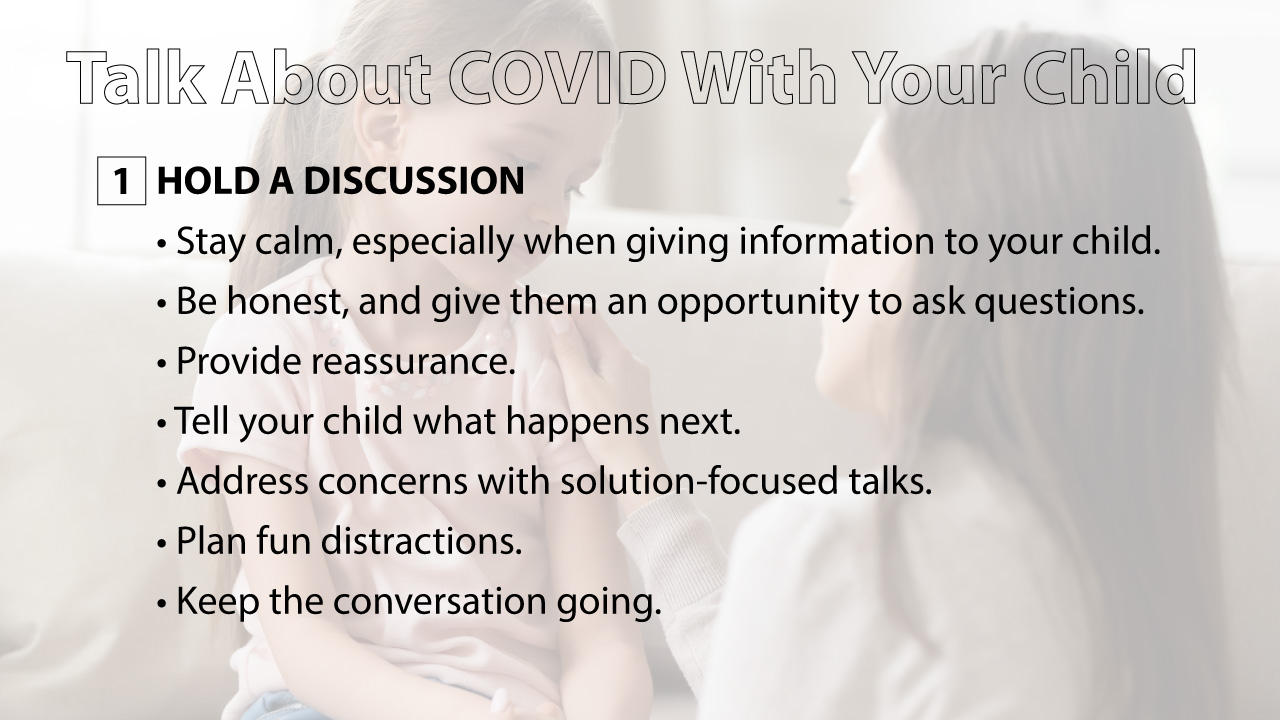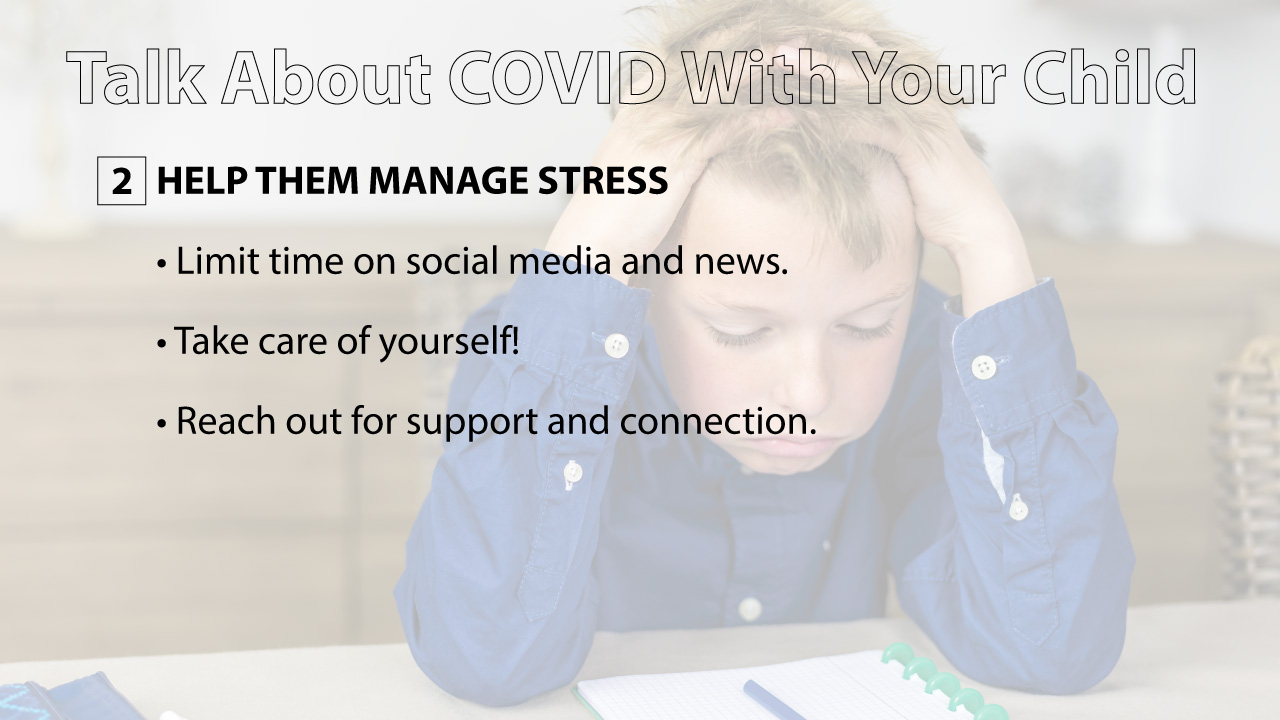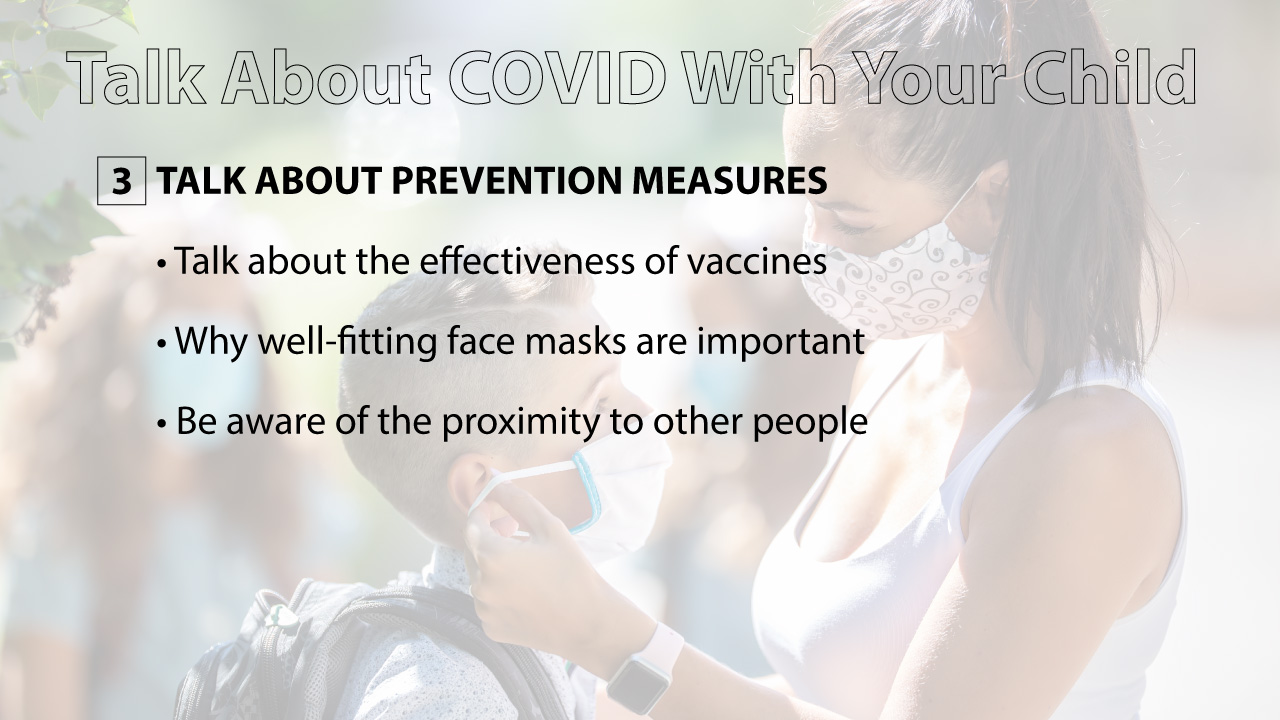Share
A positive COVID-19 test can alarm families, especially those with youngsters in the house.
The uncertainty of the virus, along with the frustrations of changing plans and everyday routines, can cause overwhelming emotions for the whole family, and can be especially distressing for children.
Even someone as versed on the pandemic as Fresno County’s Interim health officer, Dr. Rais Vohra, says he dealt with mixed emotions last month when his family came down with COVID.
“There’s going to be a day when your kid comes to you and says, I feel some symptoms, or you get a note from school, and that’s one moment which is kind of stressful to work through,” said Vohra.
“I would say maybe parents can think about how to react in those moments ahead of time so that they’re prepared and therefore seem a little bit more calm.”
Doctors Offer Tips for Dealing with a Positive Test
Dr. Hailey Nelson, a primary care pediatrician at Valley Children’s Hospital, and Dr. Amanda Suplee, a pediatric psychologist at Valley Children’s, published an article in healthychildren.org with tips on how to help manage stress and anxiety.

Nelson said she had reached out to Suplee in January when COVID cases were very high and she was receiving a high number of calls from distressed parents.
She recalls upset parents that had done everything to protect their children and yet now had COVID in their home.
“We really wanted to give them some coping measures,” said Nelson. “Dr. Suple worked with me in really highlighting some of the tips for families as we continue to see more and more children who, unfortunately, are being impacted by COVID.”
Said Suplee: “We’ve seen a significant increase in stress, anxiety, depression across the pandemic, and we want to be able to provide families with tips and strategies that they can use in their homes.”
Talk About COVID Calmly
This time can be extremely stressful, but it’s important to remain calm and set a thermostat on the conversation, the doctors say.
Parents should keep their tone of voice and body relaxed, while also allowing children to ask questions.
“The most important thing is, to be honest and have open conversations. I think a lot of times we want to shield our children from the scary things in the world and don’t talk about it,” said Suplee.

For older children, they can become distressed because they’re missing out on schoolwork and hanging out with friends or going places.

The doctors say it’s important for parents to reassure their children that they are more than able to make up their schoolwork by contacting the teacher for missed assignments, and also giving them time to connect with friends through video calls, group video games, or encouraging them to make art projects to give to friends.
“We all do really well with a sense of control, but especially for children,” said Suplee. “So if you say, I understand that this is really scary for you right now and these are the things that we can do to keep ourselves safe, this is what you’re doing at school, this is what you’re doing with your friends — that can give them some things to really focus on in the moment.”
Help Them Manage Stress
Suplee says learning how to manage stress is key, and while it may seem exponentially harder to manage in a COVID environment that is constantly changing and full of unknowns, it’s learning how to cope that will make the difference.
“Finding ways that your family can cope together is actually really helpful because then your children are going to learn like, this is what I do when I’m feeling worried and stressed, and this is what I do to take care of my body,” said Suplee.

Talk About Prevention Measures
After almost two years of the COVID-19 pandemic, Nelson says many parents still have questions about the safety of the vaccines.
What helps, says Nelson is going over the numbers of how many vaccine doses have been administered can be reassuring.
“When we start to look at these really big numbers that a vaccine that’s being monitored closely and we’re not seeing adverse events in children that it really is safe, and it’s effective, and it’s preventing the things that we want to prevent to keep our children healthy,” said Nelson.

RELATED TOPICS:
Categories

Amazon Down for Thousands of Users, Downdetector Reports

Trump Taps US Senator Mullin to Replace Noem as DHS Chief

Fresno Police to Conduct DUI Checkpoint Saturday Night

















